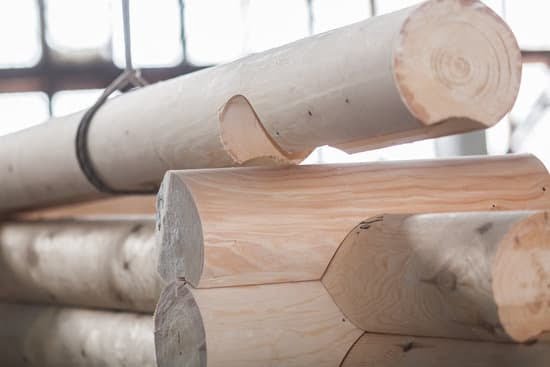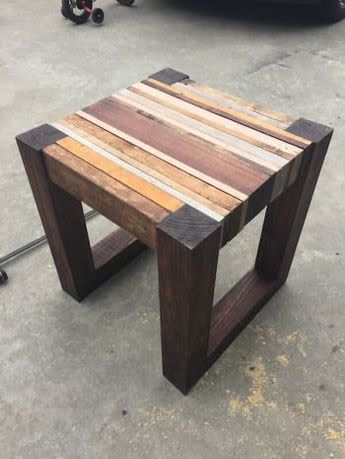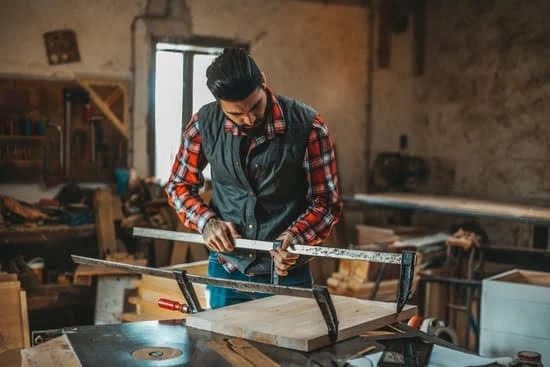Are you looking for where to learn woodworking in NYC? Woodworking is a time-honored craft that has been practiced for centuries, and finding the right resources to learn and hone your skills can be crucial.
In New York City, there are numerous opportunities to explore the world of woodworking, whether you’re a complete beginner or an experienced woodworker looking to expand your knowledge. From classes and workshops to DIY resources and community studios, this article will guide you through the diverse options available for learning woodworking in the Big Apple.
The history of woodworking in New York City runs deep, with a rich tradition of craftsmanship and artistry. From the early days of furniture making and shipbuilding to the modern era of bespoke woodworking studios and co-working spaces, NYC has always been a hub for creativity and innovation in the woodworking world.
Understanding this history can offer a unique perspective on how woodworking has evolved in the city and provide insight into what makes it such a vibrant place for learning and practicing this timeless skill.
In the following sections, we will delve into some of the top woodworking classes, workshops, DIY resources, studios, and communities in NYC. Whether you prefer structured classes or independent learning, there are plenty of options to suit your needs and preferences.
Additionally, we’ll explore tips for finding the best woodworking instructors in NYC, as well as recommendations for tools and materials essential for pursuing your craft in the city that never sleeps. So let’s get started on this journey to embrace the art of woodworking in NYC.
The History of Woodworking in New York City
Woodworking has a rich history in New York City, dating back to the early days of settlement. The city’s abundance of natural resources and skilled artisans made it an ideal location for woodworking to thrive. In the 18th and 19th centuries, New York City was a hub for furniture making, with craftsmen creating intricate pieces that are still cherished today.
During the Industrial Revolution, woodworking in NYC evolved as it became an essential part of the city’s economy. The demand for finely crafted wood products grew, leading to the establishment of numerous woodworking shops and factories throughout the five boroughs. This period marked a significant shift toward mass production, but also saw the preservation of traditional woodworking techniques.
Today, the legacy of woodworking in NYC continues to inspire artisans and hobbyists alike. From iconic landmarks built with exquisite woodwork to modern furniture designs that reflect the city’s diverse cultural influences, New York remains a place where creativity and craftsmanship intersect.
Whether it’s through traditional hand tool methods or cutting-edge woodworking technology, the passion for this age-old craft endures in the heart of the Big Apple. If you’re wondering where to learn woodworking NYC has no shortage of opportunities for enthusiasts to delve into this rich heritage.
- Woodworking classes at local community centers
- Workshops offered by renowned woodworking schools
- Resources from DIY woodworking clubs and groups
Whether you’re a beginner or seasoned woodworker, there are countless avenues in NYC to explore this timeless art form.
Top Woodworking Classes and Workshops in NYC
Woodworking is a timeless skill that allows individuals to create beautiful and functional pieces from wood. Whether you are a beginner looking to learn the basics or an experienced woodworker hoping to refine your techniques, there are plenty of opportunities for woodworking classes and workshops in NYC.
One of the most popular woodworking classes in NYC is offered by the Brooklyn Woodworking Studio. They provide a range of classes for all skill levels, from introductory courses to more advanced woodworking techniques. The studio also offers specialized workshops focusing on specific projects, such as building a custom dining table or crafting intricate wooden boxes.
Another great option for woodworking classes in NYC is the Makeville Studio located in Brooklyn. Their classes cover various aspects of woodworking, including hand tool usage, joinery, and furniture making. Makeville Studio prides itself on providing a supportive and collaborative learning environment, making it an excellent choice for beginners.
For those interested in more specialized workshops, the DIY Joint in Brooklyn offers classes specifically geared towards creating custom wood pieces using both traditional and modern techniques. From building your own cutting board to crafting a unique coffee table, DIY Joint provides a diverse array of project-based workshops.
When considering where to learn woodworking in NYC, individuals should also explore local community centers and adult education programs. Many community centers offer affordable woodworking classes led by experienced instructors who are passionate about sharing their knowledge with others.
| Woodworking Class/Worskshop | Location |
|---|---|
| Brooklyn Woodworking Studio | Brooklyn |
| Makeville Studio | Brooklyn |
| DIY Joint | Brooklyn |
DIY Woodworking Resources in NYC
If you’re interested in learning woodworking in NYC but prefer a more hands-on and self-directed approach, there are plenty of DIY woodworking resources available in the city. Whether you’re a beginner looking to start your woodworking journey or a seasoned woodworker in search of new projects and inspiration, these resources can help you hone your skills and unleash your creativity.
Here are some DIY woodworking resources in NYC that you can explore:
- Local Libraries: Many public libraries in NYC offer books, magazines, and online resources on woodworking, providing valuable information on techniques, tools, and project ideas.
- Woodworking Stores: Visit specialty woodworking stores in the city where you can find an array of materials, tools, and equipment for your DIY projects. Some of these stores also offer workshops and demonstrations for enthusiasts.
- Online Forums and Communities: Joining online forums and social media groups dedicated to woodworking allows you to connect with fellow woodworkers, share tips and advice, and gain insights into the craft from a diverse community of makers.
These DIY resources empower individuals to take charge of their learning experience and pursue their woodworking interests at their own pace. Whether it’s through reading informative books at the library, browsing for supplies at a local store, or engaging with like-minded individuals online, there are numerous avenues for expanding your knowledge and skills in woodworking passionately.
Woodworking Studios and Communities in NYC
In the vibrant city of New York, woodworking studios and communities play a significant role in fostering creativity, skill-building, and a sense of camaraderie among woodworkers. These spaces provide the necessary resources, equipment, and support for both beginners and experienced craftsmen to hone their skills and collaborate with like-minded individuals. Whether you are interested in traditional woodworking techniques or modern woodworking practices, NYC has a diverse range of studios and communities to explore.
One such notable woodworking studio in NYC is the Makeville Studio located in Brooklyn. This spacious studio offers a variety of woodworking classes for all skill levels, from basic furniture making to more advanced techniques such as joinery and wood carving. With a focus on hands-on learning and personalized instruction, Makeville Studio provides an enriching environment where participants can explore their creative potential and gain practical knowledge.
In addition to dedicated woodworking studios, NYC is also home to thriving woodworking communities that bring together enthusiasts from all walks of life. These community-driven spaces offer workshops, shared workspaces, and events where individuals can connect with others who share their passion for woodworking. Whether you are looking to learn new skills, seek advice on a project, or simply be inspired by the work of others, these communities serve as valuable hubs for anyone interested in woodworking.
Tips for Finding the Best Woodworking Instructors in NYC
If you’re looking to dive into the world of woodworking in New York City, finding the right instructor can make all the difference. Whether you’re a beginner or an experienced woodworker, having a knowledgeable and skilled instructor can help you improve your craft and learn new techniques. Here are some tips for finding the best woodworking instructors in NYC.
Research Local Woodworking Schools and Workshops
One of the best ways to find a reputable woodworking instructor in NYC is by researching local woodworking schools and workshops. Institutions such as the Brooklyn Woodworking School, Makeville Studio, and The DIY Joint offer a variety of classes taught by experienced instructors. Look for schools that offer courses tailored to your skill level and interests, whether it’s traditional hand tool techniques or modern woodworking methods.
Seek Recommendations From Fellow Woodworkers
Another valuable way to find the best woodworking instructors in NYC is by seeking recommendations from fellow woodworkers. Join local woodworking communities or attend meetups where you can connect with other enthusiasts who can point you towards skilled instructors. Hearing about others’ personal experiences with specific instructors can give you insights into their teaching style and expertise.
Consider Individualized Instruction
For those who prefer personalized attention, consider finding woodworking instructors in NYC who offer one-on-one instruction. Individualized lessons allow for tailored guidance and feedback, which can be especially beneficial for beginners or those looking to refine specific skills. Reach out to local woodworking studios or independent instructors who may offer private lessons catered to your learning goals.
By following these tips, you’ll be well on your way to finding the best woodworking instructor in NYC to help you develop your skills and passion for this timeless craft. Whether you choose group classes at a reputable school or seek out individualized instruction, investing in quality education will set you on the path to becoming a proficient woodworker in the city that never sleeps.
The Benefits of Learning Woodworking in NYC
Learning woodworking in NYC comes with a wide range of benefits for both beginners and experienced woodworkers. Whether you are looking to hone your skills, unleash your creativity, or simply immerse yourself in the art of woodworking, there are numerous advantages to learning this craft in the Big Apple.
One of the key benefits of learning woodworking in NYC is the access to top-notch instructors and classes. The city is home to some of the most renowned woodworking instructors and workshops, providing students with invaluable knowledge and hands-on experience. Additionally, being surrounded by like-minded individuals in a vibrant city like New York can be incredibly inspiring and motivating for anyone looking to delve into the world of woodworking.
Furthermore, learning woodworking in NYC also opens up opportunities for networking and collaboration. Woodworking studios and communities often host events, meetups, and exhibitions where individuals can connect with fellow woodworkers, share ideas, and even showcase their work. This sense of community not only fosters creativity but also provides a supportive environment for those passionate about woodworking.
Moreover, embracing the art of woodworking in NYC allows individuals to tap into a wealth of resources and materials that are readily available within the city. From specialty lumber yards to hardware stores carrying a wide selection of tools and supplies, aspiring woodworkers have access to everything they need to bring their projects to life.
This abundance of resources makes it easier for students to learn about different types of wood, experiment with new techniques, and ultimately broaden their skill set.
| Benefits | Details |
|---|---|
| Access to top-notch instructors and classes | NYC is home to renowned woodworking instructors providing invaluable knowledge |
| Opportunities for networking and collaboration | Woodworking communities host events where individuals can connect with fellow woodworkers |
| Wealth of resources and materials | NYC provides access to specialty lumber yards & hardware stores carrying a wide selection of tools & supplies |
Recommended Tools and Materials for Woodworking in NYC
Woodworking requires a variety of tools and materials to create beautiful and functional pieces. Whether you are a beginner or experienced woodworker in NYC, having the right tools and materials is essential for your projects.
Essential Woodworking Tools
Some of the essential woodworking tools that every woodworker in NYC should have in their arsenal include a quality set of chisels, hand planes, saws, clamps, measuring tools, and a sturdy workbench. These tools are fundamental for shaping, cutting, joining, and assembling wood pieces.
Recommended Materials
When it comes to materials for woodworking in NYC, there are numerous options available. Hardwoods like oak, maple, cherry, and walnut are popular choices for furniture making due to their durability and beautiful grain patterns. For smaller projects or decorative elements, exotic woods such as mahogany or teak can add a unique touch. Additionally, plywood and MDF (medium-density fiberboard) are commonly used for more affordable and versatile options.
Sourcing Tools and Materials
In NYC, there are several specialty woodworking stores where you can purchase high-quality tools and materials. These stores often carry a wide selection of hardwood lumber along with various hand tools and power equipment. Additionally, many hardware stores in the city also stock basic woodworking supplies for those who may be new to the craft.
By having the right tools and materials at your disposal in NYC, you will be well-equipped to embark on woodworking projects of all scales. Whether you are crafting custom furniture or creating small handmade items, investing in quality tools and materials will ensure the success of your endeavors.
Conclusion
In conclusion, woodworking in NYC is a thriving and vibrant community with a rich history and a wide range of opportunities for both beginners and experienced woodworkers to hone their craft. Whether you are interested in taking formal classes, attending workshops, or exploring DIY resources, there are numerous options available for where to learn woodworking in NYC.
The city’s history of woodworking adds an extra layer of significance to the craft, making it an even more meaningful pursuit for those who choose to embrace it. The diverse array of woodworking studios and communities in NYC provide ample opportunities for enthusiasts to come together, share ideas, and learn from one another.
By seeking out the best woodworking instructors in NYC, individuals can improve their skills and broaden their understanding of the art form. With the right tools and materials recommended for woodworking in NYC, aspiring woodworkers can begin their journey with confidence and creativity. As more people discover the benefits of learning woodworking in NYC, this timeless craft will continue to thrive in the Big Apple for generations to come.
Frequently Asked Questions
What Is the Best Way to Learn Woodworking?
The best way to learn woodworking is by taking classes or workshops from experienced woodworkers. These hands-on experiences can provide valuable knowledge and skills that books or videos may not offer.
How Do I Start Woodworking With No Experience?
Starting woodworking with no experience requires researching basic techniques, investing in essential tools, and practicing simple projects. It’s also helpful to seek guidance from online resources or local woodworking clubs.
Can You Learn Woodworking by Yourself?
Yes, it is possible to learn woodworking by yourself through self-study and practice. However, seeking guidance from experienced woodworkers, joining online forums, or attending woodworking events can provide valuable support and encouragement along the way.

Hi everyone! I’m a woodworker and blogger, and this is my woodworking blog. In my blog, I share tips and tricks for woodworkers of all skill levels, as well as project ideas that you can try yourself.





